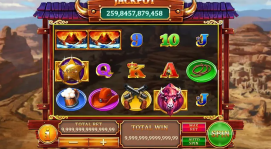
years | best slot machines at mirage | Updated: 2024-11-16 19:09:11

Anarchy derives from the Greek word "anarchos," which translates to "without a ruler." It embodies a political philosophy that advocates for a society without hierarchical structures, emphasizing voluntary associations and self-governance. Understanding anarchy requires a look at its history and underlying principles.
### 1.1 Historical ContextThe roots of anarchy can be traced back to various social movements and philosophers. Anarchist thinkers like Pierre-Joseph Proudhon, Mikhail Bakunin, and Emma Goldman argued against coercive institutions and promoted freedom and mutual aid. Their influential writings laid the groundwork for modern anarchist thought, challenging the legitimacy of state authority.
### 1.2 Core PrinciplesAnarchy is built on several key tenets: autonomy, cooperation, and anti-authoritarianism. It posits that individuals should have the right to govern themselves without coercion from the state or any external entity. This belief in self-determination extends to communities, encouraging grassroots organization and collective decision-making.
## 2. Misconceptions about AnarchyMany misconceptions surround the concept of anarchy. It is often portrayed as synonymous with violence and disorder. However, numerous anarchist movements advocate for peace and social justice rather than chaos. It's essential to distinguish between negative portrayals and the actual ideals of anarchist theory.
### 2.1 Anarchy vs. ChaosAnarchy does not imply a lack of order; rather, it envisions a different form of societal organization. Anarchists argue that communities can establish norms and practices that foster cooperation and trust without centralized authority. Studies of anarchist societies reveal that they can function effectively through consensus and mutual support.
### 2.2 Anarchism in Modern SocietyModern-day anarchist movements address contemporary issues like environmentalism, capitalism, and systemic inequality. Many activists adopt anarchist principles in their fight against oppressive systems, advocating for decentralized approaches to governance and economy. From cooperatives to mutual aid networks, anarchy has found relevance in various social justice movements today.
## 3. The Future of AnarchismThe future of anarchism lies in its adaptability and relevance to contemporary challenges. As the world grapples with issues like climate change and social injustice, anarchist principles may offer alternative solutions based on cooperation and sustainability.
### 3.1 Reimagining GovernanceAnarchists envision a society where decisions are made collectively, fostering community resilience and self-reliance. Such models challenge traditional power dynamics, urging people to reclaim agency in their lives. By promoting local solutions to global problems, anarchism presents a viable framework for social change.
### 3.2 ConclusionIn summary, anarchy is often misunderstood yet holds significant potential for reshaping societal structures. By prioritizing individual autonomy and collective cooperation, anarchism serves as a compelling critique of traditional hierarchies. As we continue to face pressing global issues, embracing anarchist principles may lead us toward building a more equitable world.
**Word Count: 543**
